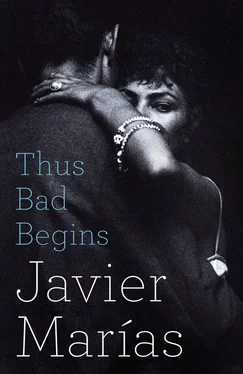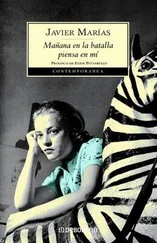I can’t remember all the facts and names from that hasty reading years ago, but I’ve now consulted the entry on the seventeenth Earl of Oxford in the online version of the Dictionary of National Biography only to discover that it’s not exactly the same as in the old print versions. The current entry is shorter and more superficial, less chaste, more gossipy and more explicit. It mentions something that does not appear in the older version, something that had crossed my mind, not when I was reading about De Vere, about whom I cared nothing (mere momentary curiosity aroused by Rico the troublemaker), but when I was thinking about Muriel and the possible reasons for his stark rejection of Beatriz. One of the classic reasons for a husband to bar from his bed a wife he once desired and to insult her, convinced that no punishment will ever suffice and convinced, too, that he’s totally right and justified, is for that woman to have passed off as his a child engendered by another man. Many bastard children have, throughout history, been handed over for adoption or sent far away or simply made to disappear, thus most cruelly punishing the adulterous woman, who, once she has had the child (and sometimes even before it is born) no longer cares who the father was; all she wants is to sit beside the cradle of a child she often loves more than herself, and nothing else matters: it is then that a woman becomes utterly fearless. The night I saw Beatriz Noguera standing outside Muriel’s bedroom begging him to open the door, he had said to her: ‘Some stupid thing that happened ages ago? Some stupid thing? How dare you describe it like that, even now, after all the pain it’s caused and continues to cause us. A prank, eh? A little game, is that right? And all’s fair in love and war? How very witty, how very astute.’ His voice had taken on a metallic edge, an icy whisper of indignation. And later, he had said reproachfully: ‘If only you’d never told me, if only you’d kept me in the dark. When you embark on a deception, you should maintain it right until the end. What is the point of setting the record straight, of suddenly telling the truth? That’s even worse …’ I thought he might have been referring to something like this, to the fact that one of his children was not actually his and that he hadn’t found out until it was too late to withdraw all the affection he had showered on the child over the years, still less get rid of him or her. Worse still was Beatriz having revealed this to him, put him right, unnecessarily and inopportunely, because that ‘invalidates or gives the lie to everything that went before, it obliges the deceived person to look at their whole life in a new light, or else deny it,’ he had said, adding: ‘And yet that was your life, and you can’t unlive what you’ve lived. So, as the now undeceived person, what do you do? Strike out your whole existence, retrospectively cancel everything you felt or believed? That’s impossible, but neither can you preserve it intact, as if it had all been true, when you know it wasn’t.’ And he had concluded this lament or reprimand by saying: ‘Ah, what a fool you were, Beatriz. Not just once, but twice.’ The first time was the deception, the second her confession. It was possible.
The new biographical note on Edward de Vere explained how, while he was travelling on the Continent in 1575 (Paris, Strasbourg, Siena, Milan, Padua, Venice), his wife gave birth to a daughter, their firstborn, whom he refused to acknowledge as his. (A strange idea, because he had left England in February and the child was born in July; unless he hadn’t had sex with his wife for some time before his departure, just as Muriel had not had sex with Beatriz since who knows when.) That, however, does not appear to have been the cause of the estrangement, or not, at least, the only one: having been waylaid by pirates on crossing the Channel, he returned to London on a river-wherry to avoid meeting his wife at Gravesend. Perhaps this was because of the birth in his absence of his supposed daughter and his subsequent anger or annoyance or perhaps the rather odd and eccentric company he brought with him, which included, according to the Dictionary now turned gossip: ‘a Venetian choirboy named Orazio Cogno’ (for any Spanish speaker, his surname was a bad joke, coarse and accusatory, since coño means ‘cunt’), ‘and memories of a Venetian courtesan named Virginia Padoana’ (whose name also seems to be a joke, perhaps patronymic, toponymic or metonymic, or none of the above). These must be the ‘lewd persons’ to whom his astonished father-in-law and mentor, Lord Burghley, refers in his Diary, ‘apparently unable to conceive that his son-in-law preferred the company of the choirboy, whom he kept in his London lodgings for eleven months, giving rise to suspicions of pedarasty’. Suspicions, it must be said (unless the boy merely sang to him when they were alone), that seem more than credible. In this regard, there was no parallel at all with Muriel, who, from what I saw and knew, drifted from woman to grown-up woman, and I say ‘drifted’ because I never saw him make the slightest attempt to conquer any of them, he seemed merely to consent distractedly, inconsequentially, to being seduced now and then by the more determined, capricious or utilitarian of those women, as if he were reluctant or indifferent or oblivious. A famous actress once complained to me sadly, in a fit of humiliated sincerity: ‘Can you believe it,’ she said, ‘after we’d been to bed together one night, he continued to treat me as if nothing had ever happened? In the end, I had to put him straight. “Oh really?” he said. “We had carnal relations? Are you sure? You and me? Well, it’s the first I’ve heard of it.” True, he’d had quite a lot to drink, but, really, to remember nothing at all about our little roll in the hay … I’ve never been so insulted in my life. What a slap in the face for a woman as coveted as I am!’ That’s what she said, ‘coveted’, a word rarely used in that context then and even less so now.
The new entry in the DNB provided me with another piece of useless information: it mentioned the attempts by a few scholars to attribute Shakespeare’s plays to De Vere and dismissed them scornfully as being ‘without merit’. The most striking thing is that the earliest of these attempts was dated 1920 and written by one Thomas Looney (another accusatory surname). So Rico’s hated colleague wasn’t even a pioneer, or even original. I imagine the Professor would be pleased to hear that, although he may remember nothing about it.
Eduardo Muriel and Beatriz Noguera had three children, two girls and a boy, the latter being their youngest child, and once the idea of a possible false paternity had crossed my mind, I began studying their faces, their gestures, their behaviour with an extemporaneous detective’s eye, trying to discover in them clear traces of Muriel or, indeed, a complete absence of any resemblance or reminiscence or affinity. This was a somewhat vain endeavour, since I hardly saw them: they were at school most of the time or else in their bedrooms, for Beatriz and Flavia ensured that they made few if any incursions into the areas occupied by their father, who treated them with undoubted but absent-minded affection, as if they were guests or permanent residents in the same hotel. Besides, all three were so like their mother that it was as if she had conceived them entirely alone without any help from a man. The oldest, Susana, who was fifteen when I met her, was the very image of the youthful Beatriz I had seen in photos: there were a couple of framed photographs on full view, one of her wedding day with Muriel, when she must have been about twenty-two or twenty-three, and which was probably kept on display at her request or insistence (for him, that bond would be a bitter memory), and another — I wasn’t sure whether it was earlier or later — which showed her wearing a small brimless hat, in the style of the late 1950s or early 60s, and holding in her arms a little child whose identity I did not, at first, know: a very sweet two-year-old boy with fine features, his bright eyes looking to his left (Beatriz was to his right), and wearing a little fur coat, something of an exaggeration even for the cold of a Madrid winter, and a kind of white balaclava topped with a pompom, which covered most of his hair, ears and neck, but not his oval face, which stood out clearly. She wasn’t looking at the child either, but wore a vaguely distracted expression, as if she were thinking some pleasant thought quite unrelated to that particular occasion, which, despite the dark background that offered no clues, seemed to me to be some church ceremony, a christening or another wedding perhaps. Beatriz was slimmer, but, contrary to her husband’s jibes, perfectly recognizable, she hadn’t changed much at all; the same bold eyebrows, the very thick eyelashes, which were neither turned back on themselves nor curled, the straight nose so charmingly retroussé, the full, wide mouth that revealed — in a dreamy half-smile — the slightly widely spaced teeth that unwittingly lent her a vaguely salacious air, in marked contrast to her otherwise childish face, both in photos and in reality. (It was one of those mouths that would instantly lead many men to imagine unexpected and inappropriate scenes, often quite against their perfectly respectful efforts to suppress such scenes entirely.) Her features (or what they conveyed of her spirit, on the occasions when that spirit grew animated and sloughed off its usual languor or prostration) were not in keeping with her curvaceous body, they seemed to demand a less powerful, more moderate trunk, abdomen and legs, and her insolent curves a less innocent or ingenuous face. In the wedding photo, in which she was looking directly at the camera and smiling unreservedly, with a look of evident euphoria or possible triumphalism, her features were decidedly childlike, as if she were a mere girl disguised as a bride, albeit prematurely well developed. Muriel, on the other hand, already wearing his eyepatch, even all those years ago, appeared not sombre or grave exactly, but solemn, like a man convinced he is taking on an enormous responsibility. He looked young, but, in comparison with her, seemed a veteran of adulthood. She was still playing at contracting marriage, whereas he was utterly serious and conscious of the appropriateness of that verb ‘contract’, which could equally be applied to obligations, debts, responsibilities and diseases. And this wasn’t only because he was a few years older than her, it wasn’t that simple. He was someone who already knew what it means to renounce something, or who was aware that love always arrives late for its appointment with people, as he once gloomily told me, a phrase he had read somewhere.
Читать дальше












